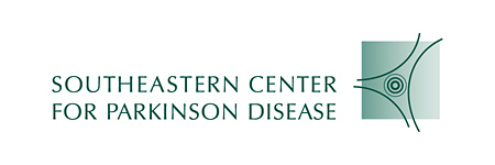Florida places a number of restrictions on the strain for which patients could begin receiving prescriptions as early as January 2015. The marijuana can’t be smoked and would need to be converted to an oil. The law severely limits the percentage of THC, the chemical that makes users feel high, to 0.8 percent, while on average, marijuana has about 15 percent THC, according to the National Institute on Drug Abuse. The strain has normal levels of cannabidiol, or CBD, which is used to treat seizures. You can’t simply go to a doctor and get it on the first day that you see him or her. The law states that you must be receiving ongoing treatment and that it will be prescribed only as a last resort if other treatments aren’t effective. With all that said, there is also a constitutional amendment on Florida’s November ballot that would allow patients access to full-fledged medical marijuana.
Scientists have been studying how the brain processes cannabinoids to develop drugs that follow the same pathways but work differently than marijuana for some time. Several drugs which either contain or have similar chemicals to those found in the marijuana plant are: Sativex, as a treatment for MS and Cancer, is approved in the UK; Marinol, as an appetite stimulator and nausea treatment, is approved in the US; and Cesamet, as a treatment for nausea and vomiting in Cancer patients, is approved in the US. So the idea has not escaped the pharmaceutical industry, but federal laws prohibiting the possession and use of the plant have stymied research efforts historically.
Parkinson’s disease is named among the illnesses to be treated by marijuana if the amendment is passed. In the majority of cases, when it comes to Parkinson’s and marijuana treatment, much evidence comes in the form of anecdotal patient stories and very small, uncontrolled studies. There are claims that it can be cost effective; has fewer side effects; and has strong healing possibilities. While this may be true, without thorough study, neurologists in states where medical marijuana is legal say they have granted very few certifications for its use. Possibly this is because clinical trials have yielded conflicting results. For example, twenty-two patients attending a motor disorders clinic were evaluated before and 30 minutes after using marijuana and significant improvement in tremor, slowness and rigidity was observed. Sleep and pain scores also improved. Another randomized clinical study showed no improvements in dyskinesias or Parkinsonisms. Proponents of cannabis say that the drug can help with tremor, stiffness, pain and anxiety. The majority of doctors believe that larger scientific studies (that all use the same chemical cannabis formula) are needed to determine whether or not positive changes occur in these areas. For those Parkinson patients whose treatment regime is failing to produce the desired results and for whom the available options are not promising, medical marijuana may be a reasonable option, but not an option that comes before changes in diet and exercise.
Neurologists are concerned not only about the lack of strong scientific evidence, but also about long-term side effects, quality control, where it comes from, what’s really in it and simple patient safety. Also a cause for concern is how the drug affects a patient’s thinking. A controlled study recently published in Neurology Today gives pause: On a battery of neuropsychological tests, multiple sclerosis patients who were regular users of marijuana performed worse than nonusers and had more diffuse cerebral activation on MRI while performing working memory tasks. Clearly, patients should be aware of the cognitive effects of marijuana on their activities of daily living. One will have to weigh the risk of falling and cognitive difficulty against the benefit of reduced tremor and pain before making the decision of whether or not to pursue marijuana as a treatment.
Sources:
Neurology Today: June 5, 2014, Volume 14, Issue 11, pg. 8-9. Functional Brain Abnormalities Linked to Cognitive Impairments in MS Patients Who Use Marijuana
CBS/Miami, May 2, 2014 2:08 PM. Florida Senate Approves “Charlotte’s Web” Medical Marijuana Bill
procon.org, 10 Pharmaceutical Drugs Based on Cannabis
Neurology Today, April 17, 2014, Vol. 14, Issue 8, pg. 1, 28-33. What Neurologists Are Doing About Medical Marijuana
Lotan, I., Treves, T.A., et al. Clinical Neuropharmacology, 2014 Mar-Apr; 37(2):41-4 Cannabis (medical marijuana) treatment for motor and non-motor symptoms of Parkinson disease: an open-label observational study
Carroll, C.B., Bain, P.G., et al., Neurology, 2004 Oct 12; 63(7):1245-50, Cannabis for dyskinesia in Parkinson disease: a randomized double-blind crossover study
Written by Doreen T. Sutherland, MBA

 RSS Feed
RSS Feed